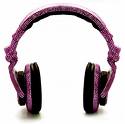Confessions of an Audio Dolt
October 29, 2009
 It's a wonder that I ever got sent to the US as a technology correspondent for a major British newspaper back in 2000, really. My lack of prowess at -- and genuine interest in -- figuring out the nuts and bolts of everyday applications I use is not something of which I'm proud. But there's only so many things I can pay attention to on any given day, and worrying about which format I transfer audio files to and from my laptop sadly isn't one of them.
It's a wonder that I ever got sent to the US as a technology correspondent for a major British newspaper back in 2000, really. My lack of prowess at -- and genuine interest in -- figuring out the nuts and bolts of everyday applications I use is not something of which I'm proud. But there's only so many things I can pay attention to on any given day, and worrying about which format I transfer audio files to and from my laptop sadly isn't one of them.
I was made to feel the full force of my technophobia yesterday afternoon when I went across the Bay to Berkeley to guest-lecture for an hour at an adult "vocal music appreciation" class. Unlike many serious music fans (and most classical music journalists) I don't keep my music library on CD, only digital audio files on my computer, even though most people in my line of work proselytize against this for reasons of quality. I don't perceive a huge difference in the quality of a CD versus most of the audio files on my laptop. frankly. Then again, computer audio files do vary radically in quality, which is a detail I confess that I need to pay closer attention to.
So I turned up to class with a playlist in an embarrassingly motley range of file formats. Some of them were near-CD quality. Others, I must confess, I'd yanked off YouTube using AudioHijack, and the quality was far, far from perfect. One or two of the tracks sounded like they were being played at the bottom of a well.
The teacher of the class was not impressed. He had the most staggeringly stagey audio setup I'd seen in a while, with speakers resting on ball-bearings. You couldn't so much as breathe on the shiny black objects without causing him to get upset. I got a public dressing down for having some of the tracks as MP3 files rather than the more up-to-date AIFF files. "Did you rip some of this stuff off the Internet?" I was asked with a critical "tsk" halfway through the class.
I dunno. Of course it's preferable to have optimal quality when you're listening to music. It's always better if you do. But having a slightly-less-than-perfect listening experience isn't going to cause your eardrums to explode. And going with a not-extremely-good output is OK too if you're under duress (ie you want to play something that is only available on YouTube) and using the music sample to make a general point rather than listening intensively in private.
The students in the class didn't seem to mind all that much anyway. Many of them came up afterwards to say how much they'd enjoyed the lecture. And hopefully the teacher forgave me for my sin. Rest assured, though: I'll be paying closer attention to audio file formats in the future. Lesson learned.



2 Comments:
"But having a slightly-less-than-perfect listening experience isn't going to cause your eardrums to explode."
True as that may be, the real question has more to do with the "target" of the listening experience. When you provide an audio excerpt, was is the point you are trying to make? You do not need high-quality reproduction to recognize that Bessie Smith had her own intonation system for the chromatic scale (which is just as well, since there is a limit to how much you can clean up her recordings). On the other hand, as my colleague Scott Fogelsong pointed out to me, there is a physical reaction to fortissimo bowing on a violin's G string that even the best reproduction equipment fails to capture. Noah Greenberg used to have his singers practice singing fifths in the perfect 3:2 ratio; and it would not surprise me if the subtle difference in that kind of perfection never made it through most (if not all) of the New York Pro Musica recordings.
By Stephen Smoliar, At
October 29, 2009 at 10:42 AM
Stephen Smoliar, At
October 29, 2009 at 10:42 AM
agreed, stephen. i think the kind of recording has to fit the audience and point you're trying to get across. in this case, i was trying to give the class as broad a range of high male voices as i could in the space of an hour. it was more of a historical survey than anything else. and no recording of alessandro moreschi, the last of the castrati, is going to sound any good to begin with. on the other hand, if there had been time to dig deeper, i would have liked to have had better quality recordings in a couple of cases to help students listen out for the often subtle differences between the male and female soprano voice. thanks for weighing in.
By Chloe Veltman, At
October 29, 2009 at 10:46 AM
Chloe Veltman, At
October 29, 2009 at 10:46 AM
Post a Comment
<< Home